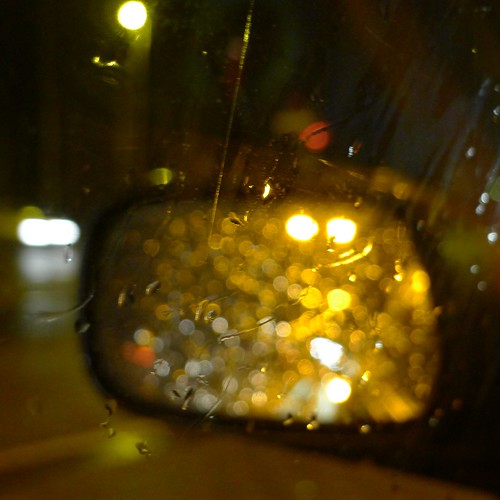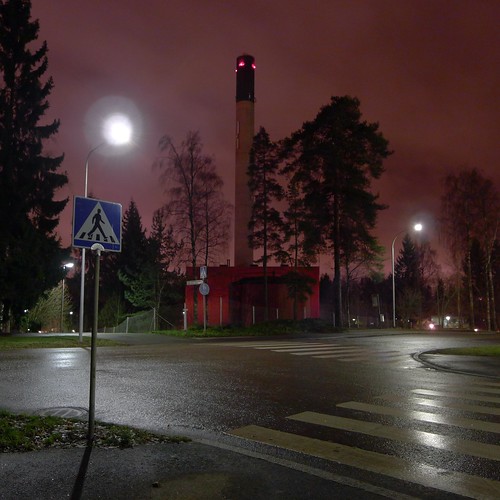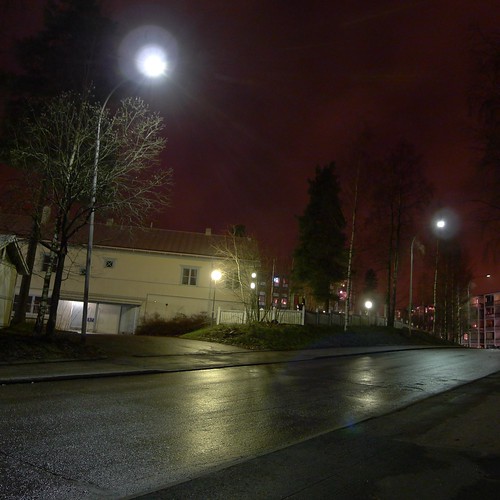Today was a colder day, and we got finally some sunshine. We went for a walk in the Luukki forests, exploring forests and looking at swamps and lakes.
But this won't last long: during this night a storm will hit Finland, bring rain and strong winds.
I have written little about cameras recently, mainly because the LX5 works so well. I haven't resorted to shooting RAW, as the jpeg quality at ISO 500 is reasonably good, at least for me.
Andreas wrote an interesting posting about cameras (including the LX5), in which he covers a lot of ground - or to be more precise, different types of cameras.
Even though the LX5 is not perfect (as the LX3 before it), it is often surprisingly good. Well, most surprises are good with this camera, I should say. I have been rather impressed with the autofocus ability in dim light - I'm not using the autofocus assist lamp (it wouldn't help in landscape photography anyway), and still the LX5 usually focuses as fast as one would wish for.
There is one thing though, which I don't like, and which became apparent only recently when I started using a mini-tripod for long exposures.
The problem occurs if you are using the Auto LCD off setting. Namely, when I switch on the self-timer, and then start composing the shot, if the LCD off function activates, the LX5 forgets about the self-timer, and when you press a button, you have to reactivate the self-timer.
This is a nuisance. I have quite often pressed the shutter release button, and only then realized that the self-timer was not on. And when you are taking long exposures, you either have to wait for several seconds, or switch off and restart the camera.
Saturday, December 3, 2011
Never seen by waking eyes
Friday, December 2, 2011
I'm just looking backward to see
Today I didn't go out for a walk, and as it is raining, I'm planning to stay inside. It is dark out there.
Yesterday I wrote some words about the local library system. I'm a big customer: since April 22, 2008, I have borrowed 1420 items, mostly books, but also some cds.
There is a limit of 40 items one can borrow. And there is also a limit of 30 reservations. I have been most of the time maxing out on these, going to the library at least once a week to return items and borrow some more. It is not bad, but sometimes I wish the limits would be a little higher.
But anyway, the independence day in Finland is coming up, and weekend ahead. If only the weather would be better for spending some time outside.
Thursday, December 1, 2011
Finnish Lessons: What Can the World Learn from Educational Change in Finland?
December, and I commuted by bicycle. Not bad. But there were some patches of black ice on the way, and the back wheel slipped alarmingly sideways a few times. (And I'm still thinking about the studded winter tires...)
Yesterday I wrote some words about reading poems in different languages, English and Finnish, and I even offered you a Finnish lesson.
But this time I decided to write about another kind of Finnish lessons, namely a book about the Finnish school system, which is regarded by many to be one of the best in the world.
A book titled Finnish Lessons: What Can the World Learn from Educational Change in Finland? (Teachers College Press, 2011) has just appeared. The book is generating interest in many countries, including the USA.
The book was written by Pasi Sahlberg, who really knows this stuff, and I'm thinking of getting a copy of it. The local library didn't have it yet, but it is available through Amazon.
Addition: The local library didn't have the book, but they offered some articles on this topic: "Lessons From Finland" by Pasi Sahlberg (Education Digest, Nov 2011, Vol. 77 Issue 3, p. 18-24) and "A+ for Finland" by Lynnell Hancock (Smithsonian, Sep 2011, Vol. 42 Issue 5, p. 94-102).
Addition 2: I'm often asthonished by the quality of material available through our local library system.
Addition 3: A quote from Hancock's article: "When compared with the United States school children in Finland perform at a much higher level and yet far fewer dollars are spent per pupil." And Hancock quotes Sahlberg: "It was simply the idea that every child would have a very good public school. If we want to be competitive, we need to educate everybody. It all came out of a need to survive."















